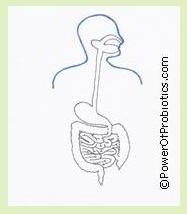Trimethylaminuria: Can Probiotics and Dietary Elimination Help?
Trimethylaminuria, or TMAU, is a metabolic disorder characterized by body odor that has a fish smell to it. Read more about this condition, including the causes, types and triggers (including offending foods) on this page.
On the page about TMAU, including the categories of foods that typically cause the problems, I wrote that since this is a site about probiotics, I want to focus on the dietary overload and disease states aspects of trimethylaminuria. Dietary overload can be a common occurrence, but does that mean you are severely restricted in what you can eat?
Should You Avoid Foods That Convert to TMA and TMAO?
If you missed it, read this page first about the sources of problematic foods. Eliminating seafood and liver is doable, as is eliminating cow-based milk products. Freshwater fish have lower levels of TMA so they may be a better option. Eliminating eggs and meats and whatever else your body requires is also doable.
While reducing your intake of TMA-containing foodstuffs will likely reduce the TMA produced, it is not the only answer and in some cases can make your health worse.
For example, carnitine is a non-essential nutrient because it can be made in the body from lysine and methionine. However, if your microbiota convert carnitine to TMA before you can absorb the carnitine, you can actually have a deficiency of carnitine. (So do you really need those carnitine supplements or need to clean up your gut?)
In some cases, carnitine supplementation for some heart conditions such as congestive heart failure, angina and intermittent claudication and for vascular injury in hemodialysis patients can improve and/or prolong quality of life.
Another example of detrimental effects from deficits is with choline. Choline is a non-B-vitamin, non-essential nutrient since it can be made from the amino acid methionine. However, choline is considered in reality to be conditionally essential because the body usually cannot make enough to meet the body’s needs for the neurotransmitter acetylcholine and for lecithin for numerous functions such as bile production. Therefore, a diet devoid of choline can result in fatty liver, neurological disorders and methylation problems and is not recommended for most people.
What you will need to figure out is what your threshold (the amount at which you start to get symptoms) is with certain foods, realizing that the secondary factors can upset even the most well-thought-out plan. I can help you figure out a nutrition plan that works for you.
It may also be helpful to try some of the lifestyle suggestions from community forums, but first read about the diseases states and TMA connection.
What Disease States May Contribute to Trimethylaminuria?
 |
Any disease state or compromise anywhere in the gastrointestinal tract or in the organs of detoxification and elimination (liver, kidneys, skin, lungs) can theoretically contribute to TMAU, especially in the liver which may already be struggling due to the genetic component of TMAU. |
While not detailed in the literature, it is not far-fetched to believe
that exposure to toxins can impair the ability of the FMO3 enzyme to
oxidize TMA to TMAO because the FMO3 enzyme has other duties in the body besides
oxygenating TMA, such as detoxing plant alkaloids and many drugs, as
well as functions that are still not known. If the FMO3 enzyme is in
short supply compared to the demands for it, something is not handled
well.
Small intestine bacterial overgrowth (SIBO), a type of dysbiosis or unbalanced microbiota, may increase TMA production, as may bacterial vaginosis (BV).
Constipation can make matters worse by not moving food at a desirable pace through the digestive tract and by allowing dysbiosis to occur.
GERD or reflux can result in dysbiosis.
Possible heart disease risk: As mentioned on the page about probiotics and TMAO,
research published online (February, 2015) points to
TMA as a new risk factor for heart diseases related to the number of
plaque segments and severity of calcified plaque burden in HIV patients.
Most other studies have been targeting TMAO as the culprit, not TMA.
Stay tuned. Please check back on this page and the TMAO page for
updates.
What Are the Probiotics, TMA, TMAO and TMAU Connections?
What breaks down the foodstuffs to trimethylamine (TMA), the problem molecule in TMAO and trimethylaminuria in the first place? No, not your digestive enzymes. Intestinal bacteria are the biggest culprits in breaking down the foodstuffs to TMA but NOT JUST ANY intestinal bacteria.
The major bacterial converters of carnitine, choline, phosphatidylcholine and betaine to TMA are NOT your probiotic bacteria. They are mostly neutral, pathogenic or opportunistic microbes.
What Are Some Ways Probiotics May Help Trimethylaminuria?
- Probiotics can help control the populations of neutral, opportunistic or pathogenic microbes so that less TMA is released from foods and drinks.
- Probiotics can reduce constipation, speeding up the transit time of food in the intestines so that there is less time for TMA to be released from food.
- Probiotics can help with GERD or reflux.
- Please read about the other health benefits of probiotics here which might help with your symptoms.
What About Specific Probiotics for Trimethylaminuria?
No specific probiotics have been studied exclusively for the reduction of TMA in humans yet, but researchers are beginning to study this issue in mice.
There are anecdotal reports on online forums of people being helped by kombucha and a few different probiotic supplements such as VSL#3 or Align, but no formal research on those for the purposes of trimethylaminuria investigation have been done. So far, no conclusions can be drawn.
What may be on the horizon for TMAU treatment is archaebiotics, the use of members of the Archaea kingdom loosely called “methanogens”. Archaea that consume TMA and produce methane gas in exchange are well documented in cows. A few species have been identified in humans and for possible therapeutic use in humans. It seems that one type of the methanogens appears to be more abundant in older subjects but the cause of this is unknown. However, even though several of these methane-producing Archaea have been identified in humans, there are challenges in bringing a product to the marketplace.
The good news is that the current emphasis on reducing TMAO for its possible cardiovascular connection will probably benefit the trimethylaminuria community, too, since funding for heart diseases is rather abundant compared to that for TMAU. Read more about TMAO reduction on this page.
While I cannot recommend any specific treatment for trimethylaminuria on this webpage, what I can say is that if dysbiosis (unbalanced microbiota) is a problem in your gastrointestinal tract, then tip the balance of microbes in your GI tract toward probiotic ones and consume only quality, nourishing foods, not processed stuff. Not only will this help your prevention of potential TMAO/TMA problems but it will give you the numerous health benefits that probiotics and a healthy diet can provide. Of course, if you have any questions or concerns, discuss them with your doctor.
For probiotics I look to:
- Fermented whole food and drinks (exercise caution if tyramine is a problem) and
- Probiotic supplements
If you are interested in nutrition therapy help for your trimethylaminuria, you can find out more about it on this page.
Trimethylaminuria Community Support
There are many other suggestions online in the support forums such as:
Note that I do not screen or monitor the information or posts presented on that site, so I cannot make any recommendations concerning the validity of the information.
Return to page on other health conditions.
I research studies and share my clinical experience to write this free site to help you find solutions to your problems. As part of that, I recommend products and services that I genuinely believe will be of help to you. If you click on a link to a product/service, I may receive a small commission to support my efforts if you buy something. The item does not cost you more.
Thanks for visiting this site! If you've enjoyed reading this page or have found the information to be useful to you, please "like", tweet about it, or share it so others can benefit, too. You can leave comments below via Facebook or Disqus.
Comment with Disqus (including as a guest), Twitter or Google accounts:
If you are one of my many readers without a Facebook account, you can still comment.
Disclaimer: Please note: By law, I cannot provide any personalized recommendations for your specific health concern on this site. The information contained in this site is educational in nature and is not intended as diagnosis, treatment, prescription or cure for any physical or mental disease, nor is it intended as a substitute for regular medical care. Consult with your doctor regarding any health or medical concerns you may have.
Subscribe to my monthly newsletter and receive a free copy of "How to Use Probiotics to Lose Weight and Be Healthier".

To comply with the EU's GDPR data privacy regulation, please subscribe here:
Looking for some quality professional supplements, including probiotics? Check out my online dispensary, as I will be doing reviews of some of these products in the future. Click on the Fullscript picture. (Note: If you were a former Wellevate customer, please switch to Fullscript for a better customer experience. Thanks!)
Some competitors of SBI (Solo Build It) are posting fake negative reviews of SBI. If you are considering creating your own website business, or if you have a brick-and-mortar business but want an online presence, I highly recommend SBI!





Comment with Facebook!
I'd love to hear your opinion about what you just read. Leave me a comment in the box below! Other commenting options follow the Facebook comments.